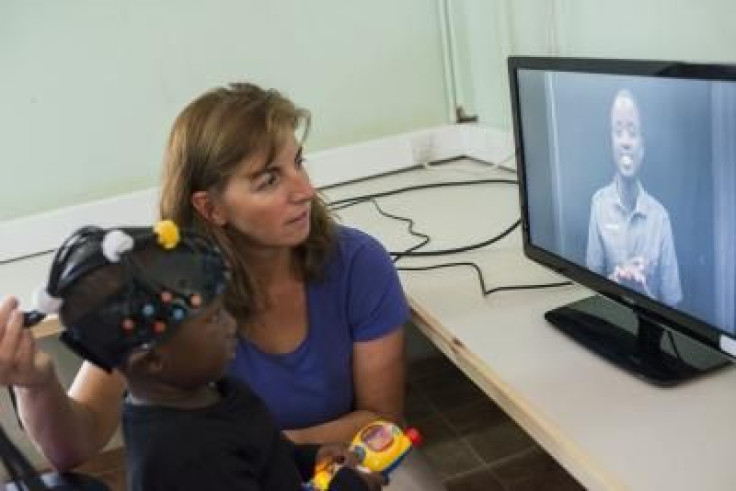Malnutrition's Effect On Kids' Brain Development Now Measured In Poor Countries Thanks To New Tool

British scientists studying the cognitive effects of childhood malnutrition in poor countries might next turn their attention to the United States, where one in five children face hunger.
Still, investigator Clare Elwell of University College London says her team’s pioneering use of functional near-infrared spectroscopy (fNIRS) in Africa will yield greater insights into the effects of hunger on the cognitive development of infants in poor countries. Whereas previously researchers relied primarily on behavioral assessments to measure cognitive defect, the new tool will allow the real-time observation of infantile cognitive development.
"Brain activity soon after birth has barely been studied in low-income countries, because of the lack of transportable brain imaging facilities needed to do this at any reasonable scale,” Elwell said in a statement. “We have high hopes of building on these promising findings to develop functional near infrared spectroscopy into an assessment tool for investigating cognitive function of infants who may be at risk of malnutrition or childhood diseases associated with low income settings."

With funding from the Bill and Melinda Gates Foundation, Elwell and colleagues from the London School of Hygiene and Tropical Medicine collaborated with local health officials in Gambia. Although studying a problem with obvious repercussions, the researchers endeavored to quantify — for once and all — precisely how nutrition affects infant brain development in regions with extreme poverty.
“This is the first use of brain imaging methods to investigate localised brain activity in African infants,” Elwell said. "Until now, much of our understanding of brain development in low income countries has relied upon behavioural assessments which need careful cultural and linguistic translations to ensure they are accurate. Our technology, functional near infrared spectroscopy, can provide a more objective marker of brain activity."
In Gambia, the researchers watched fluctuations in blood flow to the baby brain in observations of 4- to 8-month-old infants as adults played games such as “peek-a-boo” as a stimulant. Onscreen, the new scanning tool showed changes in blood flow with distinct brain regions responding to visual-social prompts — i.e., peek-a-boo — while others responded to auditory prompts.
As researchers continue efforts to define the problem of world hunger, others remain focused on solving it.
Source: Lloyd-Fox S, Papademetriou M, Darboe MK, et al. Functional near infrared spectroscopy (fNIRS) to assess cognitive function in infants in rural Africa. Scientific Reports. 2014.



























